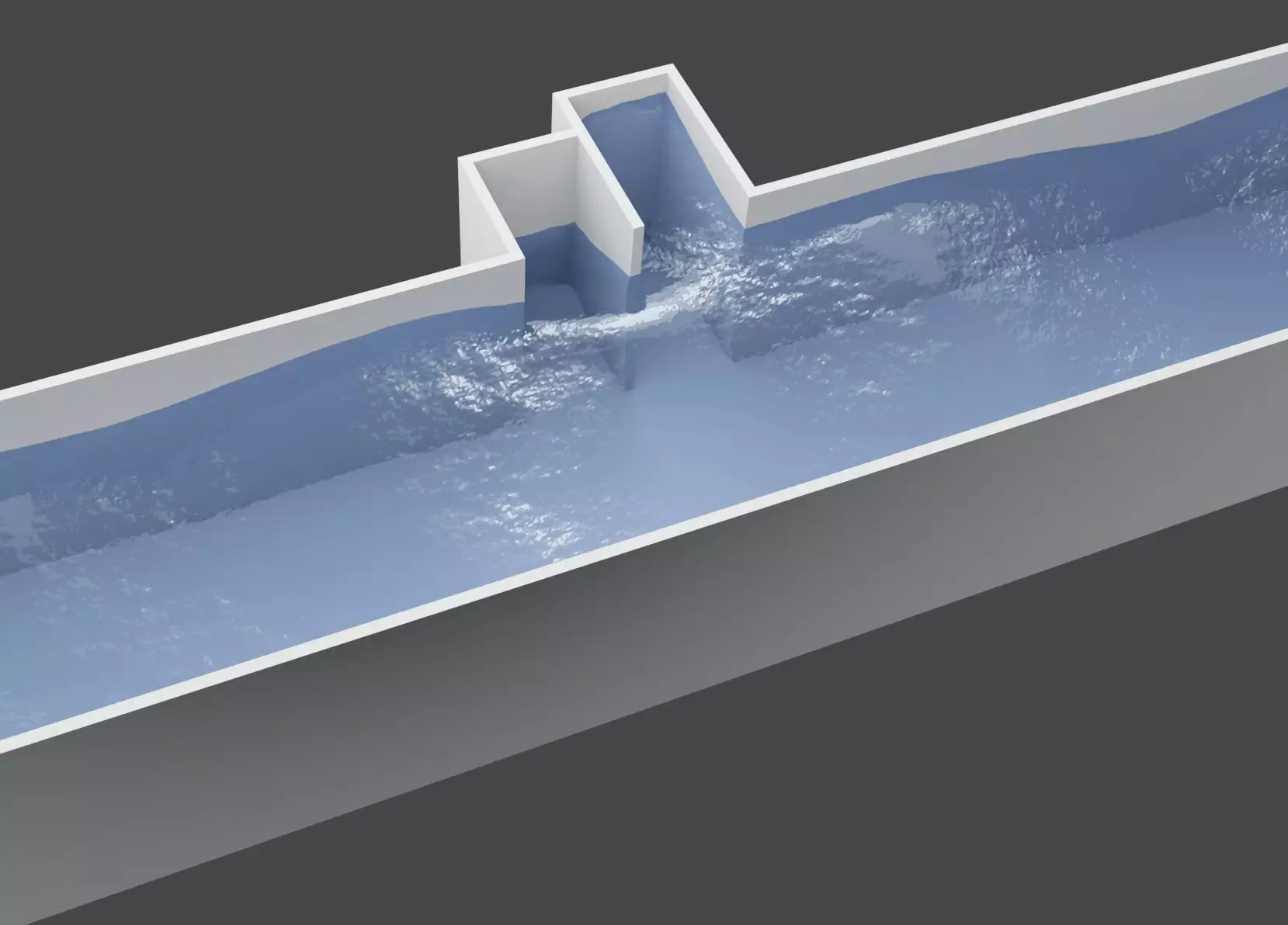The absorption of water waves is a critical process that determines the energy loss of these waves, ultimately reducing their impacts on shores and surrounding structures. As extreme weather conditions become more frequent, finding effective strategies to enable efficient absorption has become a pressing concern. For decades, researchers at Sorbonne Université CNRS, Institut Polytechnique de Paris, University of Bristol, Le Mans Université CNRS, and Université PSL CNRS have been dedicated to developing innovative solutions in this area.
In a recent publication in Physical Review Letters, Maurel and her colleagues introduced a promising new strategy for achieving the perfect resonant absorption of guided water waves. Building upon the work of American physicists Stanley Autler and Charles Townes in the 1950s, the researchers aimed to leverage a resonant effect known as Autler-Townes splitting. This phenomenon occurs in two-level resonant systems, resulting in the splitting of two transition states into smaller “doublet” states separated by Rabi oscillation.
To validate their proposed strategy, the researchers conducted extensive theoretical analyses, numerical simulations, and experiments. The team successfully realized the complete absorption of guided water waves in their laboratory experiments, utilizing a specially designed asymmetric point-like scatterer. This device was comprised of two closely spaced resonant side channels connected to a guide, enabling efficient absorption of water wave energy.
Among the various outcomes of their study, the efficiency of absorption stood out as the most significant. The researchers achieved the complete suppression of reflected and transmitted waves by utilizing a sub-wavelength device. This breakthrough has profound implications for coastal protection and the preservation of offshore structures. By implementing these resonant absorption systems, the energy with which waves hit shores and man-built structures can be controlled and potentially limit associated damage.
Moving forward, the research team plans to further test and refine their proposed strategy in both laboratory and real-world settings. If proven effective, this novel approach could revolutionize coastal protection strategies. The absorption of water waves plays a crucial role in safeguarding coastal regions. By harnessing the power of resonant absorption, the energy of waves can be controlled and mitigated to reduce the risk of damage to coastal ecosystems and structures.
While the potential applications of this research are vast, it is crucial to acknowledge the inherently non-linear nature and wide spectral content of water waves in practical implementations. To ensure the long-term success of resonant absorption systems, further studies and optimizations are required to fully understand the complexities of water wave behavior in real-world conditions.
With rising concerns over the increasing frequency and intensity of extreme weather events, finding innovative solutions for coastal protection is of paramount importance. The resonant absorption of water waves offers a promising avenue for reducing the destructive power of waves on shores and man-made structures. The groundbreaking work conducted by the research team at Sorbonne Université CNRS, Institut Polytechnique de Paris, University of Bristol, Le Mans Université CNRS, and Université PSL CNRS brings us one step closer to achieving effective coastal protection strategies. By harnessing the power of Autler-Townes splitting, the absorption of water waves could become a practical reality, safeguarding our coasts and structures for years to come.


Leave a Reply